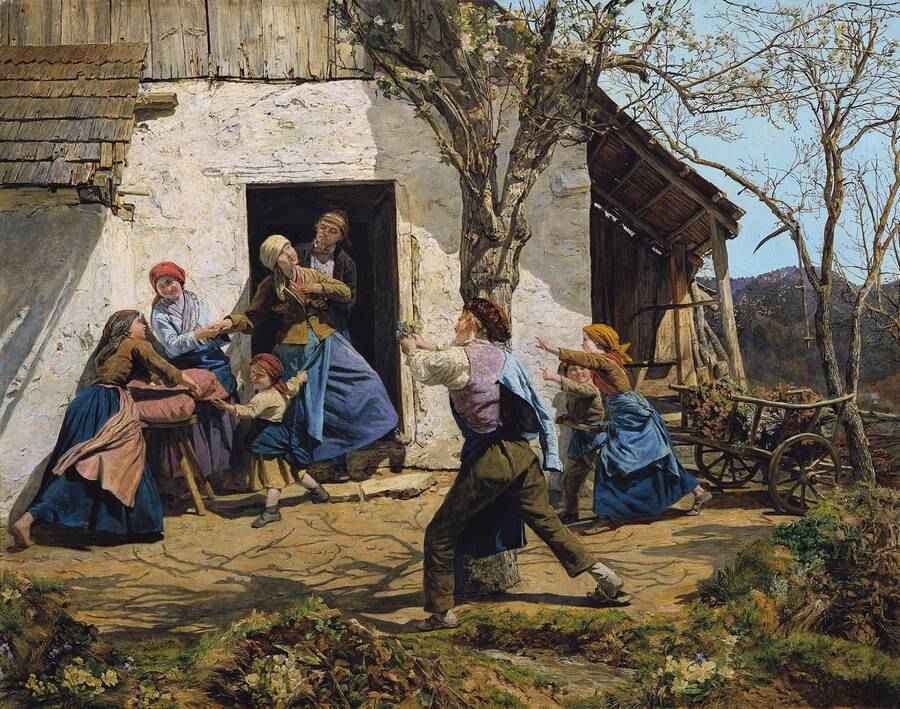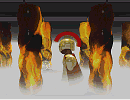Imperium Sacrum [Latin] – Sacred Authority
Order is the foundation of all things. - Edmund Burke
The Essence of Authoritarian Spirituality
Authoritarian spirituality centers on structured, hierarchical systems where divine or cosmic truth is mediated through strict leadership, doctrine, or tradition. It views the spiritual realm as governed by a universal life force—akin to the ancient pneuma (Greek for breath or spirit) or ruach (Hebrew for spirit)—best accessed through disciplined adherence to authority. From rigid religious sects to esoteric orders, it emphasizes obedience, clear roles, and prescribed paths to transcendence, often prioritizing collective unity over individual exploration. Unlike traditional spirituality’s focus on ancestral wisdom or magic’s manipulation of forces, authoritarian spirituality channels devotion through centralized control, offering certainty in an uncertain world. This exploration delves into its principles, practices, and complex role in humanity’s spiritual quest.
Foundations of Authoritarian Spirituality
At its core, authoritarian spirituality is built on the belief that divine or cosmic order is best understood through structured systems led by authoritative figures—priests, gurus, or elders. This order reflects a life force, like pneuma, flowing through a hierarchy that mirrors the universe’s structure. In some systems, divine will is revealed through sacred texts or leaders, requiring submission to achieve spiritual growth. For example, certain religious sects enforce strict interpretations of scripture, while esoteric groups like Freemasonry use tiered initiations. This approach appeals to those seeking clarity and stability, though it often demands loyalty over personal inquiry, shaping a collective spiritual identity.
Practices and Rituals
Authoritarian spiritual practices are highly structured, emphasizing obedience and ritual precision. In religious contexts, followers may adhere to strict prayer schedules, as in some monastic orders, or follow detailed codes, like dietary laws in orthodox traditions. Ceremonial rituals, such as elaborate masses or initiations in secret societies, reinforce hierarchy and divine authority. Confession or submission to spiritual leaders, as seen in some cults, ensures conformity. Training programs, like those in Scientology, guide adherents through progressive stages. These practices aim to align individuals with a greater order, fostering discipline but sometimes stifling personal freedom.
Core Practices of Authoritarian Spirituality
- Structured Rituals: Precise ceremonies, like masses or initiations, to honor divine order.
- Obedience to Authority: Submission to leaders or texts for spiritual guidance.
- Moral Codes: Strict rules governing behavior, diet, or lifestyle.
- Hierarchical Training: Progressive stages or initiations to deepen spiritual commitment.
Diversity Across Contexts
Authoritarian spirituality manifests in varied forms, from religious to esoteric systems. In Christianity, some fundamentalist sects demand strict adherence to biblical literalism, with leaders as divine interpreters. In Hinduism, certain guru-led movements require absolute devotion to a spiritual master. Secret societies, like the Rosicrucians, use tiered initiations to impart esoteric knowledge. Modern cults, such as those led by charismatic figures, often blend spiritual promises with rigid control. Even non-religious systems, like certain martial arts disciplines, adopt authoritarian spiritual structures, emphasizing a master’s authority. These diverse expressions share a reliance on hierarchy to channel spiritual truth.
Strengths and Challenges
The strength of authoritarian spirituality lies in its clarity and cohesion, offering a defined path to transcendence through discipline and community. It provides stability in times of uncertainty, appealing to those who value structure over ambiguity. Its emphasis on collective purpose fosters loyalty and shared identity. However, its rigidity can suppress individual freedom, leading to dogmatism or abuse by leaders. Critics highlight the risk of manipulation, as seen in cults, where personal agency is sacrificed. Balancing authority with autonomy is a key challenge, as authoritarian systems must adapt to modern values of individuality without losing their spiritual core.
The Personal and the Collective
Authoritarian spirituality intertwines personal devotion with collective order. An individual’s submission to a spiritual leader or doctrine reflects a personal commitment to divine truth, while group rituals, like communal prayers or initiations, reinforce shared purpose. The belief in a universal life force—whether divine will or ruach—flows through the hierarchy, uniting adherents in a structured pursuit of transcendence. This duality ensures personal discipline aligns with communal goals, as in monastic vows or cultic loyalty, but risks stifling dissent. Authoritarian spirituality thus balances the individual’s quest with the collective’s sacred order.
Authoritarian Spiritual Systems and Expressions
- Fundamentalist Religions: Strict adherence to scripture or leaders, as in some Christian or Islamic sects.
- Guru-Led Movements: Devotion to spiritual masters in Hinduism or new religious movements.
- Esoteric Orders: Tiered initiations in groups like Freemasonry or Rosicrucians.
- Modern Cults: Charismatic leadership demanding loyalty, as in Scientology or similar groups.
Authoritarian Spirituality in a Modern Context
In today’s world, authoritarian spirituality persists in both traditional and new forms. Fundamentalist movements grow amid cultural uncertainty, offering clear answers through strict doctrine. New religious movements, often led by charismatic figures, attract followers seeking purpose. Meanwhile, secular skepticism challenges these systems, demanding transparency and ethical leadership. Modern technology, like online platforms for spiritual teachings, amplifies authoritarian voices but also exposes abuses. For seekers, authoritarian spirituality offers a structured path to meaning, but requires discernment to navigate its demands in a world valuing autonomy and critical thought.
Bridging to Broader Exploration
Authoritarian spirituality, with its focus on hierarchy and order, contrasts with traditional spirituality’s ancestral reverence while sharing magic’s emphasis on structured practice. It differs from spiritism’s open communication with spirits, prioritizing control over exploration. The series continues with intellectual spirituality, which explores philosophical inquiry, offering another lens on humanity’s quest for meaning. Authoritarian spirituality’s sacred structure illuminates the soul’s search for certainty within the divine order.









